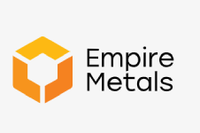Copper prices have had a rough week, with hints of a slowdown in China taking hits at the red metal. Plus, share your thoughts on the copper surplus.
Earlier in October, Reuters reported that the surplus that is expected to flood the copper market this year has yet to pass, leaving both analysts and investors thinking that the inevitable has not been avoided, but merely postponed.
“We’ve all expected this surplus to come through and it hasn’t happened,” Daniel Smith, an analyst at Standard Chartered in London, told Reuters. “People have underestimated the pace of demand growth this year for copper.”
French bank Natixis agrees that the copper market is not yet in surplus. According to Mineweb, the firm believes that although the level of copper stocks held in exchange warehouses seems to indicate that the market is already in surplus, “[a]necdotal reports suggest that stocks of copper held at bonded warehouses in China peaked at somewhere between 1mn and 1.1mn tonnes in January, and have since fallen to a low of little more than 300,000 tonnes. Netting off 110,000 tonnes of higher exchange stocks versus 700-800,000 tonnes of lower bonded stocks suggests a substantial deficit.”
The only problem, as Mineweb points out, is “trying to figure out how many of these withdrawn stocks have actually been consumed.”
Natixis looks at three different models to answer its question:
- The first assumes Chinese imports of refined copper are similar to 2012 figures.
- The second assumes that China’s end-user demand is in line with its GDP.
- The third is based on copper semis fabrication.
Of the three, the bank believes the first two are the most believable.
Through its study, the bank theorizes that “Chinese destocking accounted for around 300,000 tonnes of copper early this year, measures of consumption based on end-user demand rather than apparent demand would give us a deficit for the year of anything from 60,000 to 225,000 tonnes.” If Natixis is correct, the copper market could see “unexpectedly” higher copper prices in the near future.
On the flip side
Also looking at surpluses was Reuters, which polled several analysts. Reuters’ poll found that overall, analysts are expecting a copper market surplus of more than 182,000 tonnes for the current year before expanding to 328,000 in 2014.
“The fourth quarter we see as being sharply in surplus, as concentrate stocks go to refined (metal). Longer term, we are looking at surplus, at about 350,000-400,000 tonnes in both 2014 and 2015,” Paul Dewison from consultancy Intierra told Reuters.
For the most part, the copper market looks to be “largely in balance,” with the shift in supply only really expected in the coming year.
Copper prices
Copper prices rounded off the last full week of October skirting two-week lows as lingering concerns over China’s credit tightening overshadowed any recent growth. Copper closed slightly up from the previous session, at $7,715 per tonne on the London Metal Exchange.
This week, the red metal reached its highest levels in over a month, taking a cue from a US jobs report that indicated a slowing economy; the expectations is that it will prompt the Federal Reserve to continue with its stimulus program. On October 22, copper climbed to a high of $7,350. Unfortunately, the red metal’s gains were unsustainable. By mid-week, copper futures took a dive for their biggest lost in 12 weeks after the world’s biggest consumer, China, also showed signs of a slowdown in its economy. Copper was down nearly 2 percent on Wednesday, falling to $7,171 in London.
In New York, futures for December delivery saw their biggest drop since the end of July with a 2-percent drop for the day. COMEX copper prices settled down at $3.4675 from the previous session’s high of $3.355.
Adam Klopfenstein, senior market strategist with Archer Financial Services, told Bloomberg this week that “[a]ny bearish news out of China signals that a slowdown may be coming,” adding that “[a]ny type of slowdown is going to be bad for metals.”
Securities Disclosure: I, Vivien Diniz, hold no investment interest in any of the companies mentioned.





